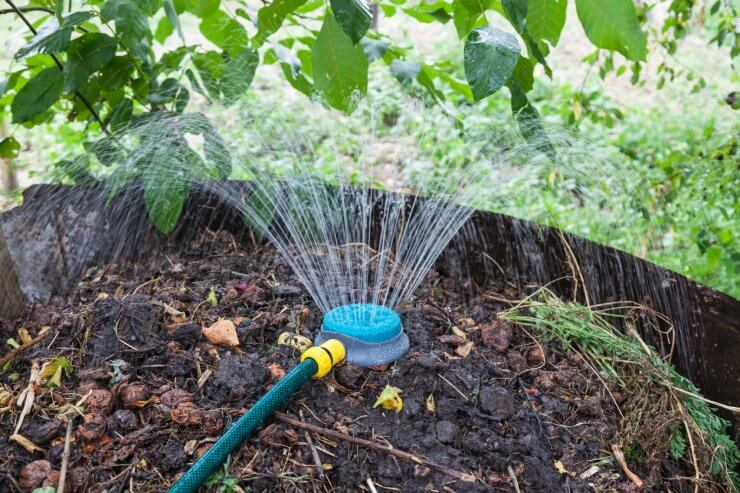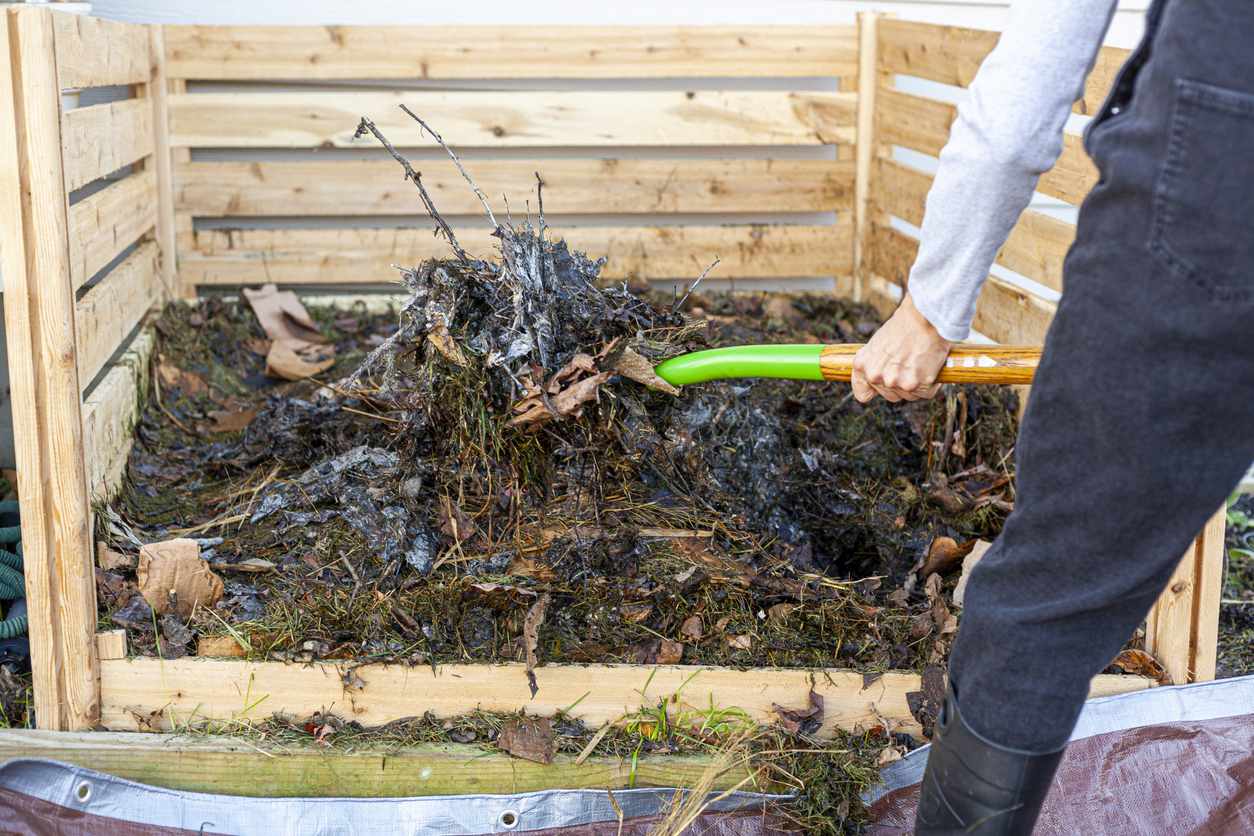
I know the feeling. You’re excited about your compost pile; you’ve tried to keep the mix right between browns and greens. Finally, you’re ready to get some finished compost and work it into your garden, so your plants have plenty of nutritious soil. And you can’t use any of it because the compost break down process seems suspended in time.
Of course, you already know compost takes some time to break down. It’s not an overnight process. Even so, sometimes our compost doesn’t seem to be changing at all. Or we’re trying to hurry things up a little because we messed up our timing, and it will be too late to add compost if we don’t speed up the process! Not that that would ever happen to you or me, but I’m sure someone, somewhere, has had that issue.
Luckily, there are a few tricks to make compost break down more quickly.
Discover 7 top tips for growing, harvesting, and enjoying tomatoes from your home garden—when you access the FREE guide The Best Way to Grow Tomatoes, right now!

The 9 steps to making compost break down faster so you can use it: From the basics to the advanced
1. Ensure your mix is correct. Depending on the season, it can be easy to get your brown and green mix out of balance. Sometimes you have an abundance of green from plant stems, apple cores, and that celery you forgot about in your fridge. Other times you’ve raked up every autumn leaf for blocks, and your compost is too brown. We try to stick to a 50/50 ratio, which also happens to be what the University of Illinois Extension Program suggests (although they refer to it as “1 part green to 1 part brown”). So if things aren’t moving along, this is an excellent place to start troubleshooting.
2. Check the size of your compost pile. As the organisms that break down materials work, they release heat, which is why compost piles heat up. A pile that’s too small may not provide enough insulation or organisms to keep the process moving.
3. Make sure your compost has oxygen. Oxygen is one of the four primary components (along with moisture, carbon, and nitrogen) that helps compost break down. In order to keep your compost pile oxygenated, it’s helpful to turn or mix the pile now and then. Several factors play into how often, but a good general guideline is once every week or two in warm weather. In the winter, you may not need to turn your compost at all. (Incidentally, if your compost is too wet and getting smelly, turning it can help with this as well.)
4. Check your materials. If your compost isn’t breaking down at all, there may be something in there that is killing the microorganisms that do the composting work. This usually isn’t a concern with kitchen waste, but if you have grass clippings or plant material that has been treated with pesticides, these could also harm those microorganisms.
Okay. Your mix is good. Your compost pile has plenty of oxygen, a good amount of moisture, and it’s heating up. But you’re still having problems making compost break down. What’s next?
5. Don’t add new material. Once you have a good-sized compost pile, work with that until your pile breaks down into finished compost. Every time you add new material, you push the composting process back. That’s not such a big deal if you aren’t in a hurry, but it does slow things down.
6. Use a 3-bin system. This won’t necessarily make compost break down more quickly, but it will give you a steady stream of mature compost. You can read more about it here, but the idea is that you have one bin of fresh material, a second bin of working compost, and a third bin of finished compost that’s curing. It’s also an excellent way to avoid adding new material to a nearly finished bin of compost.
7. Make sure your compost materials are small. The more you can break down ingredients before they go into the pile, the faster they decompose. Chop any leafy greens, crush your eggshells, shred any paper items, run your lawnmower over dried leaves or grass clippings, and so on.
8. Check the moisture. The Minnesota Pollution Control Agency points out that lack of moisture is one of the most common problems home composters encounter. If your compost isn’t breaking down, grab a handful and give it a squeeze. If there’s no moisture, your compost is too dry and needs a good mix. If it’s still dry after mixing it, you may need to grab the hose and give it a little water. Your compost pile should feel like a damp sponge.
9. Have some patience. Wait! Hear me out! I know patience won’t make compost break down faster, but it might help you in the meantime. Like many things in gardening, composting is not a quick process. Even if you do everything perfectly and the weather cooperates, and you don’t have any unforeseen issues, compost still takes at least 3 to 4 weeks to break down. And ideally, it needs another couple of weeks to cure.
If your compost isn’t composting, try these steps and see if they help. And remember, step #9 works almost every time.
Do you have any methods you use to speed up the composting process? I’d love to read about them in the comments.
Discover 7 top tips for growing, harvesting, and enjoying tomatoes from your home garden—when you access the FREE guide The Best Way to Grow Tomatoes, right now!





You say one to one, but is it by weight or by volume?
1:1 is the suggested ratio but you don’t need to get too technical and weigh your ingredients. So equal volume is probably your best guideline.
I throw in a bag of store bought compost or compost mix to give my compost a boost. We live in zone 4b so need all the help we can can get to speed things up.
Kathy in WY
Beneficial Bacteria, composting/ de-composing, remove pathogens etc
Hi Amanda,
Glad to read your articles and
content.
I use bacteria (isolated in a lab, from native cow manure / urine),
and use them to decompose wastes in the field.
Beneficial bacteria species, reported to
– fix atmospheric Nitrogen and Carbon to the soil.
– mobilize micronutrients in soil
– solubilize phosphorus
– decompose natural wastes
and any chemical compounds
We grow Rice ???? paddy, with
Zero Chemicals ( Zero inorganic chemical inputs).
One affect, we noticed is, earth worms are thriving in this re-generated soil that was previously using chemical fertilizers, pesticides, herbicides and fungicides.
We also noticed there are subtle
quality differences in the grains produced with No chemicals versus those produced with chemicals.
we believe, that beneficial bacteria can also address some of the composting issues, discussed in your article.
Thanks